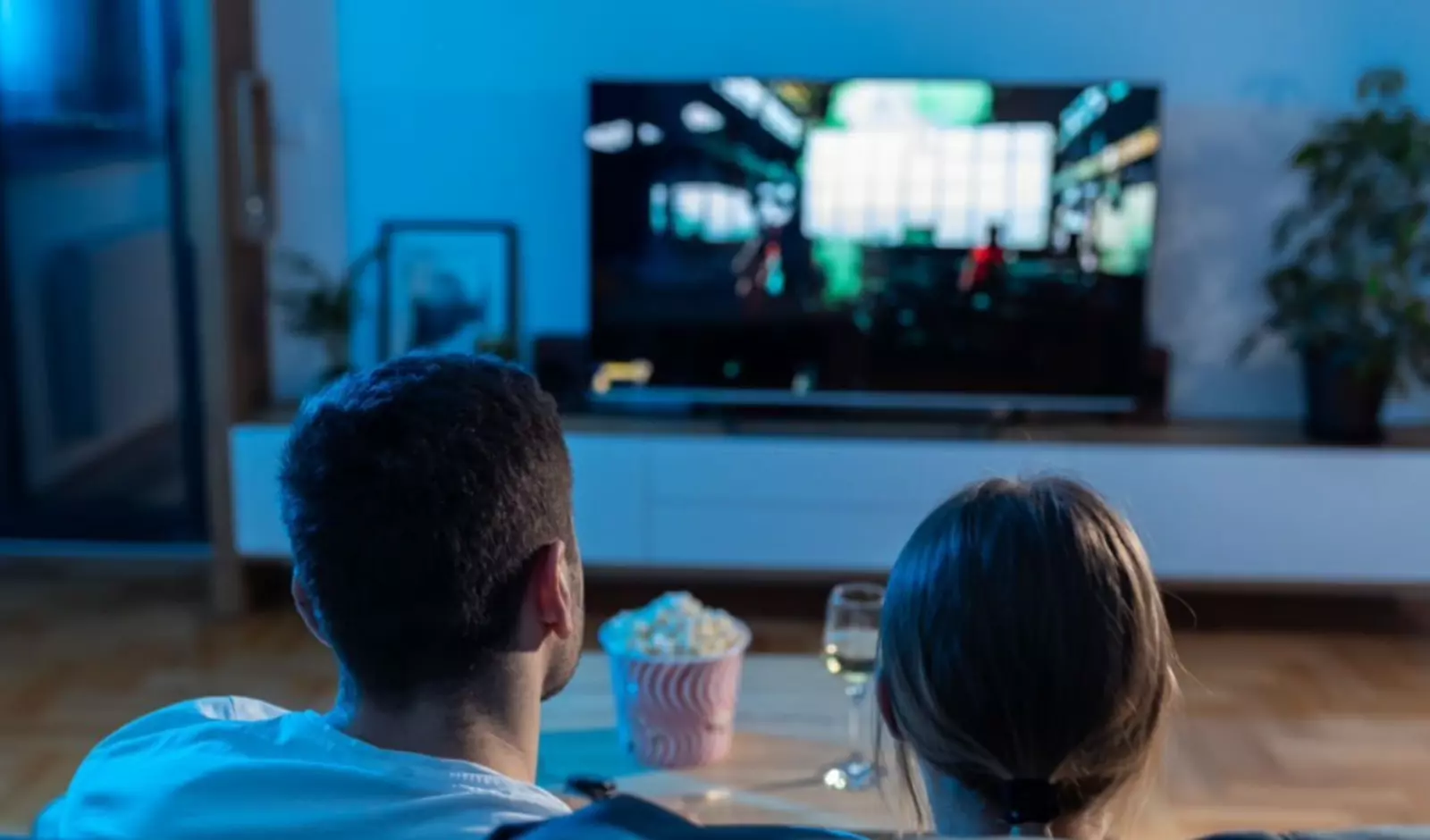In general, it costs around $200-$1000 to repair a TV screen with the wide span in pricing having to do with local labor costs, replacement parts, and other factors. (As per Angi through Bovbilla)
And the number of people searching on Google by the phrase “TV screen repair” every month is fairly strong.
This means that around 15% of TV users are either looking for a technician to fix their broken TV screen or trying to find DIY solutions to repair it themselves.
But did you know that you can avoid these expensive repairs by doing some simple things?
If not, this guide will walk you through it.
Key Takeaways:
- Turn off the TV after use.
- Don’t cover the ventilation system.
- Use a surge protector or voltage regulator.
- Keep dust away and clean the screen regularly.
- Set the correct brightness and contrast.
- Place the TV in a shaded area.
- Avoid static images.
Tip 1) Don’t Cover The Ventilation System
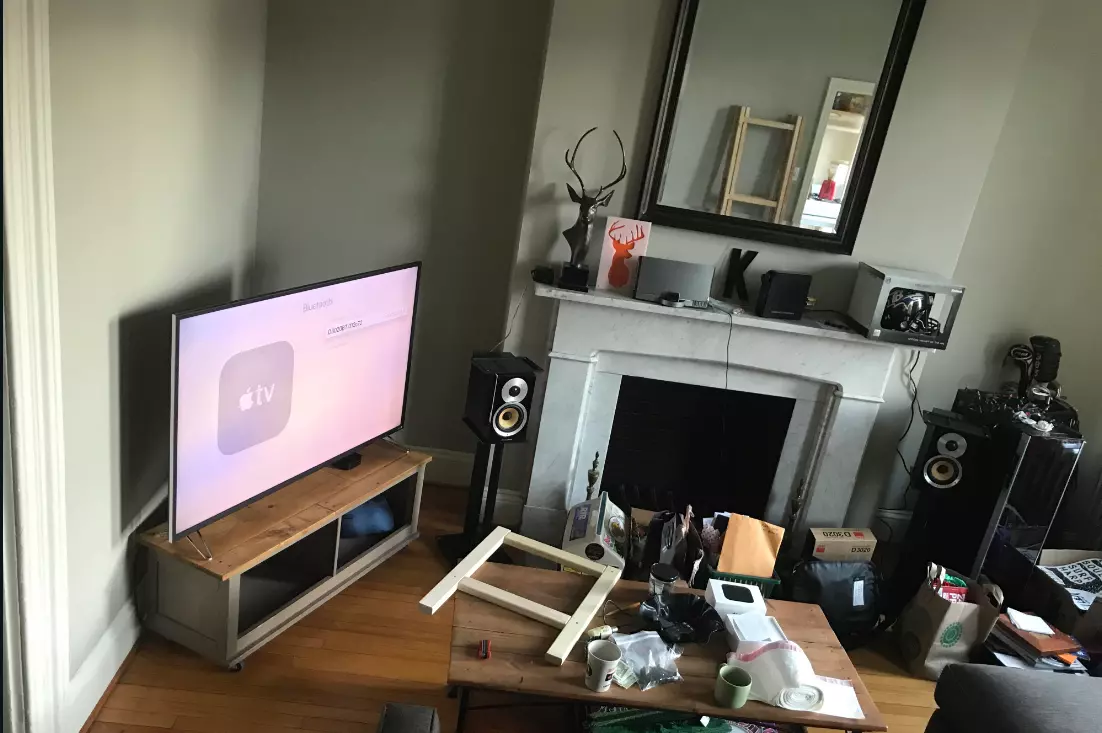
TV generates a significant amount of heat during its operation, especially if it’s running for extended periods or if it’s an older model with less energy-efficient components.
For this reason, manufacturers design their TVs in a way that allows hot air to escape and cool air to enter. This design helps regulate the temperature and prevents overheating.
However, when you block this ventilation system, you’re essentially blocking airflow and trapping the heat inside.
The result?
Over time, this trapped heat leads to a variety of issues. Firstly, it causes the internal components to operate at higher temperatures than they are designed for, reducing their lifespan and overall performance.
So, make sure that there is at least 2 to 4 inches of space between your TV and any walls, furniture, or objects that surround it.
Do not place any books, magazines, clothes, plants, or other items on top of or behind your TV.
Also, avoid placing your TV near any sources of heat, such as radiators, fireplaces, stoves, or direct sunlight.
Tip 2) Keep Dust Away And Clean The Screen Regularly
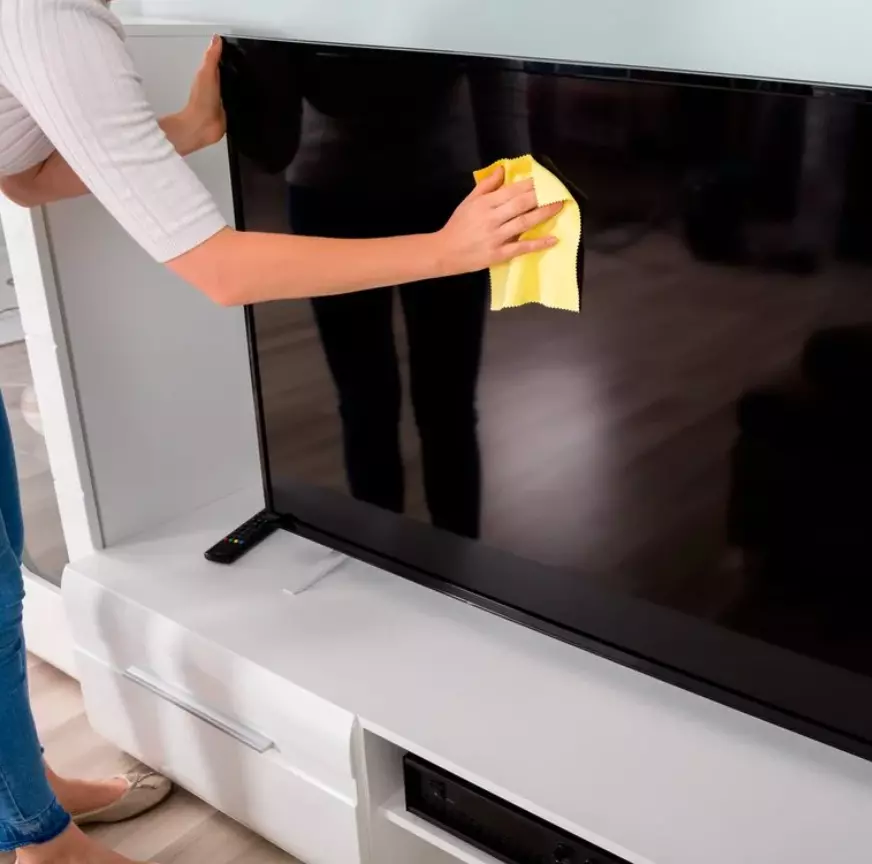
If someone were to ask me,
“What’s the main reason for a damaged TV screen?”
I’d quickly say, “It’s dust,” no doubt about it.
Why?
Because dust quietly poses a significant threat to the TV screen’s performance.
When dust lands on the screen, it slowly messes up the picture quality and the LCD panel. It can also block or scatter light, making your picture look dull and hazy.
To avoid these issues and keep your TV screen in great shape:
- Regularly wipe the screen with a soft cloth or an anti-static screen cleaner.
- Keep the TV’s exterior clean to prevent dust from getting into the ventilation system.
- Maintain a dust-free environment around your TV to reduce the buildup of airborne particles.
Note: Avoid using strong chemicals like alcohol, ammonia, or bleach, and never spray any liquid directly on your screen. Only stick to a gentle microfiber cloth for cleaning.
Tip 3) Must Avoid Static images
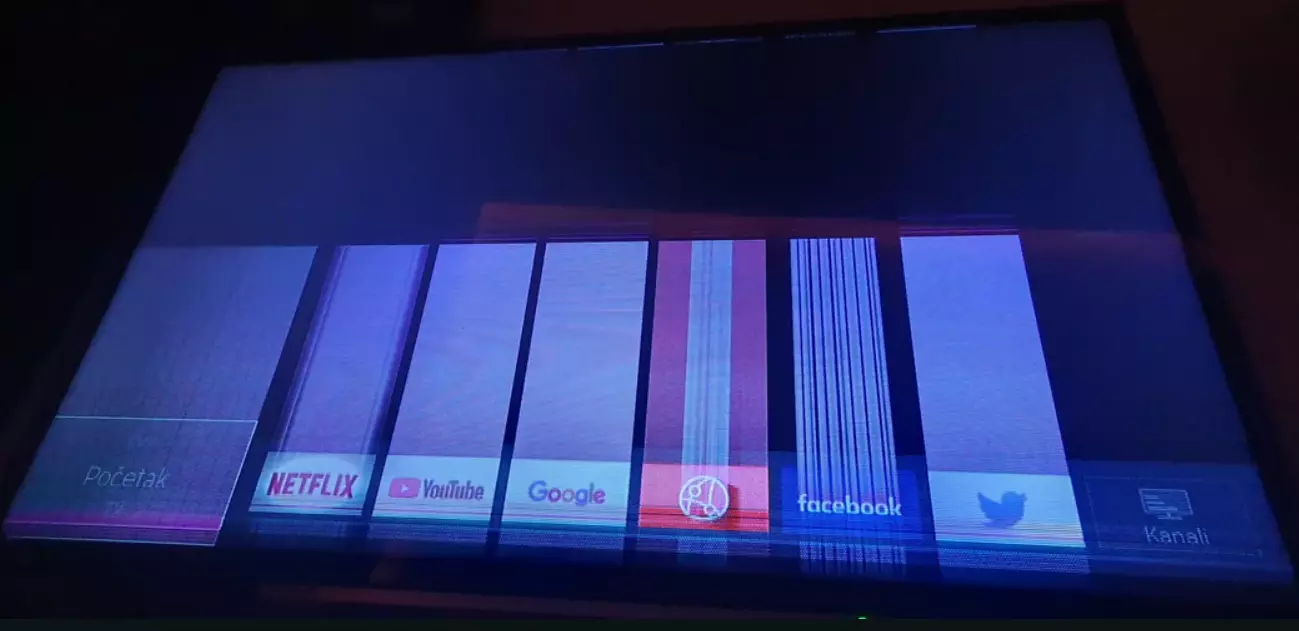
Have you ever noticed a faint leftover image on your TV screen even after you’ve turned it off?
That’s what we call “screen burn-in.”
It happens when you leave a single image or on-screen stuff for hours or days without a break.
Some parts of the screen age faster than the rest, leaving a permanent ghost-like image behind, even when you’re watching something else.
Here’s how to avoid this issue:
Change channels or content now and then, especially if there’s a static logo or ticker on the screen. This prevents them from sticking around forever.
Turn off your TV when you’re not using it, especially if you’re leaving it on a single channel or input with static stuff for a long time.
This simple step can really help prevent burn-in and save you a couple of dollars spent in repairing the screen!
Tip 4) Mount The TV In Shaded Area
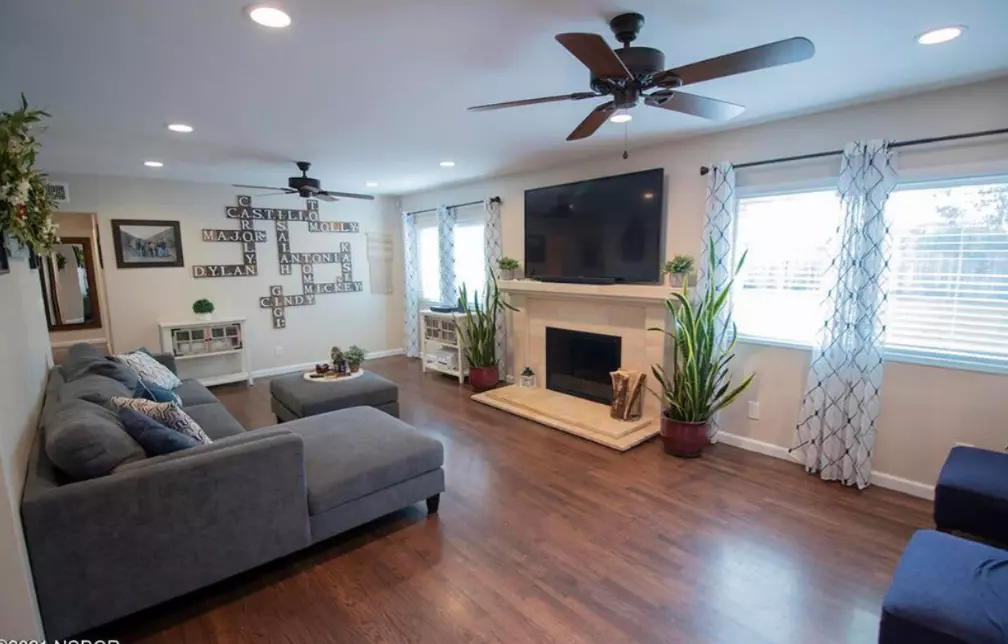
Direct Sunlight can also be a problem for your TV screen.
It can make the screen get too hot and expand, which is bad news because it can lead to cracks and damage the TV.
To prevent this:
- Don’t put your TV near windows, glass doors, or skylights that let in direct sunlight.
- Find a spot with no bright natural light and use curtains or blinds to keep the sun away.
If your TV has to stay in a sunny place, cover it with a cloth or a blanket when you’re not using it.
This way, you’ll shield it from both the sun and dust, helping it last longer.
F.A.Q.s
Q: Can I clean my TV screen with any cleaning solution?
No, you should use a microfiber cloth and a mild, non-abrasive cleaning solution specifically designed for electronics.
Harsh chemicals or abrasive materials can damage the screen.
Q: Can gaming for extended hours on my TV affect its lifespan?
Extended gaming sessions may generate more heat, but if your TV has adequate ventilation and you keep it at reasonable settings, it should not significantly impact its lifespan.

Abdul Kader, a handy guy and experienced founder of a TV repair shop in Gulshan, Dhaka, Bangladesh. He is mainly an expert in understanding and repairing different types of issues with Smart TVs and providing helpful insights on how to keep them in good working order. Read his Full Story.

